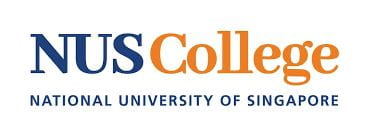What is Reflection?
If this is the first time you are visiting/editing this page, you can read the getting started guide for using Divi here. Divi is the theme we use for this site and the way it works is slightly different from plain-old vanilla WordPress.
The following guides might help you get started:
What is reflection, specifically the kind of reflection we are asking you to engage in for the production of your ePortfolio? Perhaps the easiest way to define what it is is to state what it is not: reflection is not recollection. It is not simply the remembering of an experience followed by its articulation. Rather, reflection is integral to learning; it is the process through which we gain further insight into what we have learnt beyond the immediate objectives of the learning experience. In reflection, we revisit the learning event not merely to recount it but to re-situate it in order to learn something new about it. We re-situate it by putting it in connection with other experiences in order to discover observations and conclusions that had previously gone unnoticed or to create new ones
Reflection as a mode of learning has a rich philosophical tradition and the main philosopher whose works contemporary research on reflection most often draws from is the American philosopher, John Dewey. One of the primary thinkers of the philosophical tradition pragmatism, Dewey also contributed immensely to the philosophy of education. For Dewey, learning is a process of doing that entails the “reconstruction or reorganization of experience which adds to the meaning of experience…” (Democracy and Education, 76). Reflection is that which enables this process of reconstruction and reorganization. “To reflect,” Dewey writes in Experience and Education, “is to look back over what has been done to extract the net meanings which are the capital stock for intelligent dealing with further experiences. It is the heart of intellectual organization and of the disciplined mind” (87). Deweyan reflection is thus an intentional, sustained, rigorous, and purposeful act that serves to distil and make meaning. The point of which is not only to make meaningful the learning experience but to transform both that experience and oneself as well.
Carol Rodgers, a contemporary scholar on educational theory, provides a useful four criteria summary of Dewey’s theory of reflection:
- Reflection is a meaning-making process that moves the learning from one experience into the next with deeper understanding of its relationships with and connections to other experiences and ideas.
- Reflection is a systematic, rigorous, disciplined way of thinking, with its roots in scientific inquiry.
- Reflection needs to happen in a community, in interaction with others.
- Reflection requires attitudes that value the personal and intellectual growth of oneself and of others (“Defining Reflection”, 845).
Differently put, reflection is the asking of the question ‘What do I know?’ with a few qualifications: first, that the answer is not mere confirmation of what one already knows but the construction of new knowledge; second, that the questioning is not a general musing but is goal-oriented and contextualized; third, that the question involves connecting and engaging with other people, ideas, and learning situations; and lastly, that the answer contributes to the on-going evolution of your identity, values, and commitments.
For your ePortfolio, begin with the question ‘What do I know?’ by looking over the entirety of undergraduate experiences. Ask yourself which experiences stand out and why? In order to prevent your reflection from being mere recollection, draw connections and uncover relationships across these experiences. Perhaps they all speak to a common interest or issue? Or perhaps they serve as useful points of comparison or can be productively applied in different situations? In other words, specify the general question ‘What do I know?’. Translate the general into something specific, one that speaks to your interests and commitments. Doing so will enable you to discover a central theme or question with which you can make sense of your undergraduate in a manner that is meaningful to your intellectual and professional identity and development.
So, start now! Your four years in USP will fly by faster than you think. ePortfolios are unique in their abilities to not only document your experiences and work in USP but, more importantly, they document your intellectual growth. From that first, nerve wracking oral presentation in WCT to your calm, collected demeanor in the Senior Seminar presentation, ePortfolios help you reflect on how much you have changed in four years. But you won’t see these changes unless you collect your artifacts from the beginning. Archive your work from WCT, USS, and QRF. The more of your work you keep, the better your portfolio will be. You will have more work and experiences to draw from and you will able to create a richer and true representation of your USP and undergraduate journey.
_________________________________________________________________________________________________________________________________________________________________________
References:
Dewey, John (1938) Experience and Education. New York: Collier Books
—————– (1944) Democracy and Education. New York: Free Press.
Rodgers, Carol (2002) “Defining Reflections: Another Look at John Dewey and Reflective Thinking”. In Teachers College Record 104(4): 824-866.
Header image credit: Freepik
